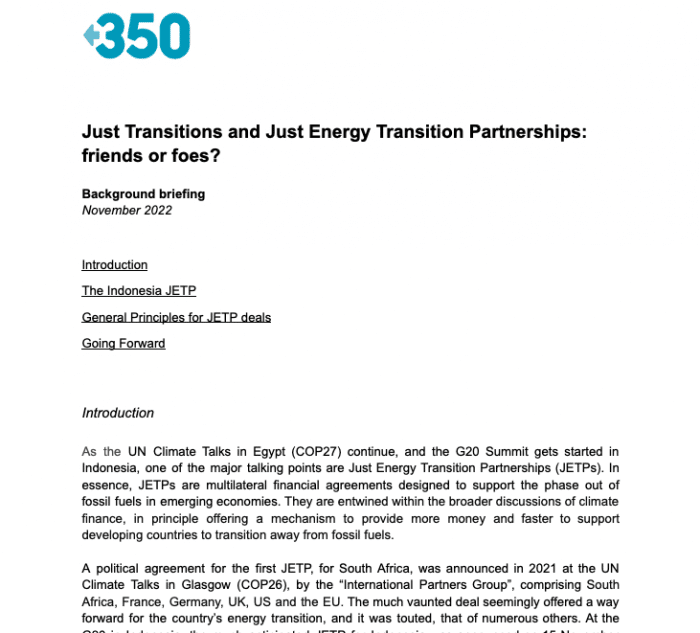Background briefing
LAST UPDATED: November 2022
As the UN Climate Talks in Egypt (COP27) continue, and the G20 Summit gets started in Indonesia, one of the major talking points are Just Energy Transition Partnerships (JETPs). In essence, JETPs are multilateral financial agreements designed to support the phase out of fossil fuels in emerging economies. They are entwined within the broader discussions of climate finance, in principle offering a mechanism to provide more money and faster to support developing countries to transition away from fossil fuels.
A political agreement for the first JETP, for South Africa, was announced in 2021 at the UN Climate Talks in Glasgow (COP26), by the “International Partners Group”, comprising South Africa, France, Germany, UK, US and the EU. The much vaunted deal seemingly offered a way forward for the country’s energy transition, and it was touted, that of numerous others. At the G20 in Indonesia, the much anticipated JETP for Indonesia was announced on 15 November 2022, with possible new announcements for Senegal, Vietnam and India coming soon.
Are JETPs a good thing?
In principle, if properly designed and implemented, JETPs could offer transformative approaches to achieving climate justice. With the right conditions, they could offer a potentially promising mechanism for energy transitions away from fossil fuels, carried out with affected communities at their centre. The money provided for example, could be used to train and re-skill workers, support needed infrastructural developments such as community-led renewable solutions, and help ensure countries do not embark on development paths using oil or fossil gas.
However, so far there are a number of concerns about the terms and conditions of current JETP agreements, including an overall lack of transparency on the deals – reflecting broader issues with climate finance. As the world looks at Indonesia and South Africa as potential models for catalysing and packaging climate finance, we take a closer look at some of the issues.
Download the full briefing:
